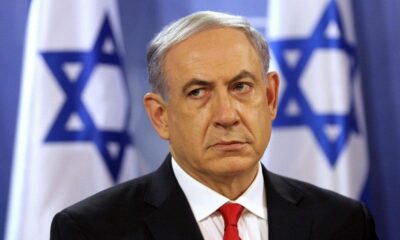Latest News
Bayat Power ‘looking forward’ to increasing domestic electricity output
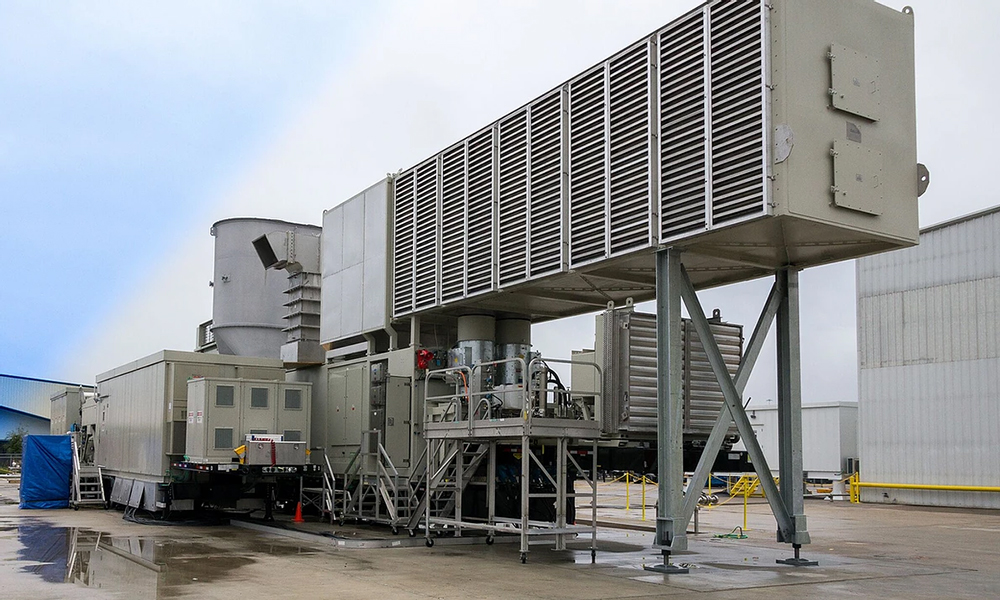
Bayat Power, Afghanistan's first and currently only, natural gas to electricity generation, energy company is looking forward to expand its domestic power output.
In a speech, delivered by a company representative, Lotfullah Stanikzai, Bayat Power informed delegates attending the key energy conference in Kabul that the “team is looking forward to deploying additional state-of-the-art turbines in Afghanistan to continue to develop the domestic gas to electricity sector, contributing to the energy security and building the nation for the long term.”
Stanikzai said the company was committed to working with government to achieve energy security and develop a pathway to energy self-sufficiency in Afghanistan.
The one-day conference, which was attended by senior Islamic Emirate of Afghanistan (IEA) leaders, representatives of foreign countries and members of the private sector, was convened to attract investment in the energy and water sectors.
Mullah Abdul Ghani Baradar, the acting Deputy Prime Minister, said in his opening speech the Islamic Emirate of Afghanistan (IEA) is committed to developing the country but urged the people to be patient adding “because we have to build this country ourselves”.
Baradar also pointed out that Afghanistan is potentially a wealthy country that has great investment opportunities.
Abdul Latif Mansour, the acting Minister of Energy and Water, also addressed delegates and said the IEA is committed to managing the country’s water efficiently and to producing enough energy for the people.
Mansour said the conference was being held to map out opportunities available in the water and energy sectors for investors and that the IEA had paved the way for local and international business owners to invest in the sectors.
Shahabuddin Delavar, acting head of the Ministry of Mines and Petroleum also addressed delegates and said it is “now time for us to maintain our country’s independence, and utilize our natural resources”.
He singled out Bayat Power, and said at the moment the company produces 40MW electricity but that it hoped to increase this substantially.
“We welcome the company’s decision,” he said.
Stanikzai told delegates that Bayat Power was the direct result of a solid private and public partnership between the company and various Afghanistan government entities, including the Ministry of Mines and Petroleum, Afghanistan Gas Enterprise (AGE), and Da Afghanistan Breshna Sherkat.
However, he stated that Bayat Power calls on the IEA to support the continuation of operations with current investors and attraction of further investment.
He urged the authorities to ensure timely payment of outstanding invoices by DABS was made to various private entities including Bayat Power; to facilitate a favorable investment environment; promote investment through favorable taxation policies and lower operational costs; and promote transparency with government entities to expedite new and the renewal of existing agreements.
He also urged the IEA to ensure that AGE continues to receive full government support so that they can remain operational and provide clean gas.
Stanikzai said it was important for DABS and the ministry of energy and water “to continue the excellent work in keeping the grid stable to take the domestic electricity produced by private sector companies.”
In conclusion, he said: “Bayat Power team is looking forward to deploying additional state-of-the-art turbines in Afghanistan to continue to develop the domestic gas to electricity sector, contributing to the energy security and building the nation for the long term.”
About Bayat Power
Bayat Power supplies electricity to schools, homes, mosques, hospitals, factories, business enterprises and other essential services. Currently the company supplies electricity to over 200,000 end users.
Bayat Group established the Bayat Power Electricity Services Distributor Company in 2013. Using the nation’s abundant natural gas reserves, the goal was to provide the people with a reliable supply of affordable and sustainable electricity.
Site work on Bayat Power-1’s 40MW gas-fired turbine started in 2019 and achieved commercial operation in November of that year. This landmark milestone made Bayat Power the first company in Afghanistan to operate a new gas-fired generation facility in more than 40 years.
Bayat Power-1 uses the most advanced, powerful, and efficient technology to extract the gas without adverse environmental impact.
Using Siemens Mobile Gas Unit “SGT-A45”, with up to 44 MW of electrical output, offers significantly more power and higher efficiency than any other mobile gas turbine worldwide.
The SGT-A45 turbine generates more than 300 million kWh per year of electricity, increasing revenue for the Afghanistan Gas Company through the purchase of gas for the project, as well as significant tax revenue for the Afghan government in the form of BRT, salaries and customs taxes, Bayat Power has been – and continues to be - a considerable PPP (private, public partnership) achievement.
This project has created more than 1,000 direct and indirect job opportunities for Afghans, which has contributed to improving the nation’s economic condition and fostered new technical skill sets amongst the country’s talented citizens.
CLICK HERE for Bayat Power's presentation at the conference
Latest News
Mujahid says IEA stands with media outlets
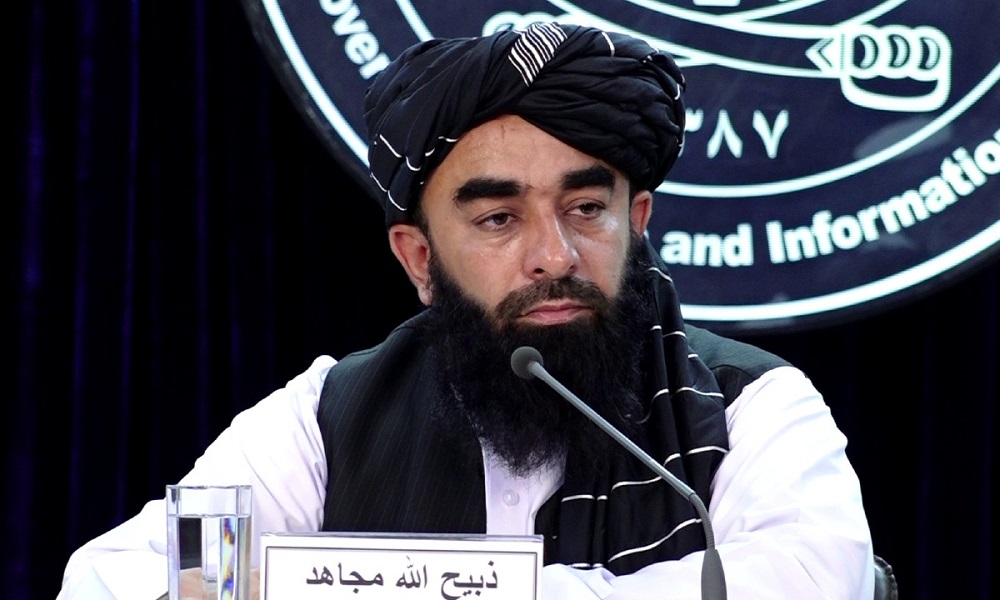
The Islamic Emirate’s spokesman Zabihullah Mujahid says the acting government is committed to supporting media outlets and they can operate within the framework of Islamic Sharia and national interests.
Marking World Television Day on Thursday, November 21, Mujahid said: “The Islamic Emirate of Afghanistan supports the media in general. Media can operate within the framework of Islamic Sharia and national interests.”
“As far as we are able, we cooperate with the media and the Afghan media currently have publications and they are broadcasting their publications well,” he added.
The United Nations General Assembly named November 21 as World Television Day in 1996.
“Since IEA’s takeover, of 184 national and local televisions, 57 television stations were shut down due to economic problems,” said Hojatullah Mujadadi, the head of Afghanistan Free Journalists' Association (AFJU).
Currently, about 370 visual, audio and print media are active in the country.
Latest News
Baradar says water crisis has negatively impacted relations between nations
Baradar expressed regret that although Afghanistan has vast water resources, effective and professional management has not been carried out in this area.

Deputy Prime Minister for Economic Affairs, Mullah Abdul Ghani Baradar, said on Thursday that the ongoing water crisis in the country has not only made neighboring countries face the problem of water scarcity, but it has also had a negative impact on political and economic relations between Afghanistan and these countries.
Speaking at a seminar held by the Ministry of Energy and Water, Baradar said that although water is a renewable natural resource, the shortage of water due to climate change, the increase in the level of water pollution, the growing demand of the people and its excessive consumption affects the country.
He expressed regret that although Afghanistan has vast water resources, effective and professional management has not been carried out in this area.
“It is now the responsibility of the Islamic Emirate of Afghanistan to fulfill its national duty for the optimal management of the country’s water resource,” Baradar said.
“With firm determination, we aim to use all available means to ensure sustainable development in water management.”
Last month, the United Nations Children's Fund (UNICEF) also warned that Afghanistan is experiencing a severe water crisis, and if no action is taken, Kabul’s underground water resources could be depleted by 2030.
In a message on X, UNICEF reported that Roza Otunbayeva, head of the United Nations Assistance Mission in Afghanistan (UNAMA), and Tajudeen Oyewale, head of UNICEF Afghanistan, visited a Kabul district to assess the city's water supply network.
Both officials expressed concern over the worsening water shortage problem in the capital.
"Water is life," UNICEF stated, emphasizing that rapid urbanization and climate change are accelerating the depletion of groundwater in Kabul.
“If we don't act now, we cannot stop this process."
The rapid population growth, unplanned construction of high-rise buildings, urban development without proper planning, and the excessive use of underground water resources are major factors contributing to the decline in both the quantity and quality of groundwater in Kabul.
Although Kabul has faced water shortages for years, the crisis has become more severe in recent times.
However, the Islamic Emirate is making concerted efforts to resolve the problem and thwart the crisis.
Three weeks ago, the office of the Deputy Prime Minister for Economic Affairs, said in a statement that plans to construct a total of 355 water reservoirs across the country were being implemented.
According to the statement, of the 355 dams, a number of them have already been completed and inaugurated while others are under construction.
Of these reservoirs, 138 are being constructed by the Ministry of Agriculture, Irrigation, and Livestock; 117 by the Ministry of Water and Energy; and 100 by the Ministry of Rural Rehabilitation and Development.
All of these dams are being funded by the Islamic Emirate of Afghanistan, the statement read.
The reservoirs are being constructed in numerous provinces to manage rainwater, prevent flooding, strengthen groundwater levels and for use by communities.
Iran’s water share
Late last year, Iranian Energy Minister Ali Akbar Mehrabian warned that if Afghanistan does not ensure Tehran receives its rightful amount of water from Helmand River, Iran will use legal and international means to resolve the problem.
Mehrabian stressed that Helmand River water is Iran's indisputable right, and that Iran takes the matter seriously.
“Water right is Iran's right and it is necessary to release it. Ensuring water rights is not optional, but it is mandatory based on the international treaty of 1351. Pursuing this matter is Iran's absolute right and we will not fail in this regard. The recent rains should cause the release of our water, and if not, we will take serious action based on international laws,” stressed Mehrabian.
At the time, the Islamic Emirate said it was committed to providing Iran with water from the Helmand River but due to drought, there is not enough water in the river to give Iran its share.
The Helmand River Water Treaty was signed between Afghanistan and Iran in 1973, according to which Iran has the right to receive 850 million cubic meters of water from Afghanistan annually.
Latest News
Pakistan rejects suggestion of appointing a new special envoy for Afghanistan
Islamabad however continues to accuse Afghanistan of providing safe havens to militant groups that target Pakistan, including Tehreek-e-Taliban Pakistan (TTP).
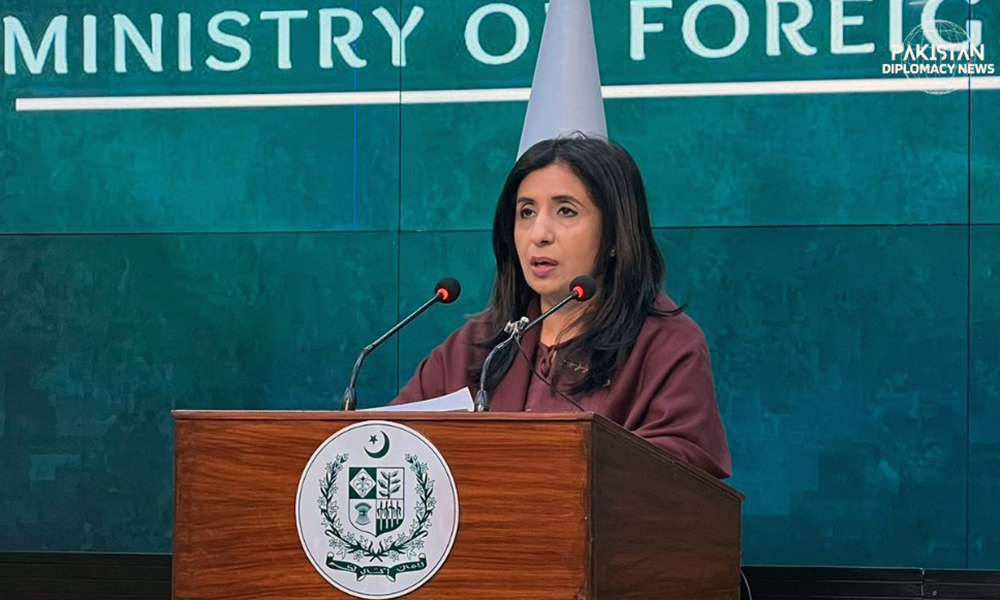
Pakistan’s Foreign Ministry Spokesperson Mumtaz Zahra Baloch has dismissed rumors that Islamabad is considering appointing a new special representative for Afghanistan.
Baloch said on Thursday that there was no truth in these reports but that special envoys for Afghanistan from Russia and China had recently visited Pakistan and met with officials.
In August, Pakistan dismissed its special envoy to Afghanistan, Asif Durrani, and has not yet appointed a replacement.
Addressing a weekly briefing on Thursday, Baloch also raised the issue of militant groups in Afghanistan.
She also announced the latest data on Afghan refugees and said so far this year, Pakistan has expelled almost 800,000 undocumented migrants from the neighboring country.
She said the process still continues to ensure a "successful and smooth return" of illegal Afghan nationals.
"Since November 2023 to October 2024, so far 757,008 undocumented Afghans were sent back to Afghanistan," Baloch said, adding that the figure also includes those who returned voluntarily.
According to UN figures, some 1.3 million Afghans are registered refugees in Pakistan, while another 880,000 have legal status to stay.
Pakistan started its crackdown on all foreigners living in the country illegally late last year.
According to Islamabad, the rise in militant attacks led them to making this decision.
Islamabad however continues to accuse Afghanistan of providing safe havens to militant groups that target Pakistan, including Tehreek-e-Taliban Pakistan (TTP).
This claim has repeatedly been rejected by the Islamic Emirate, who state they will not allow any group to use Afghan soil against another country.
-

 Sport5 days ago
Sport5 days agoFIFA unveils Innovative Club World Cup Trophy ahead of new tournament in 2025
-
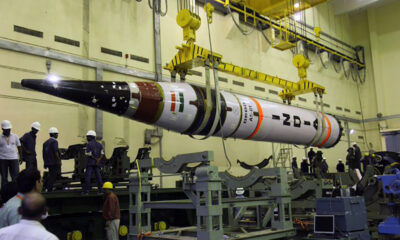
 Regional5 days ago
Regional5 days agoIndia’s successful test of hypersonic missile puts it among elite group
-

 Latest News5 days ago
Latest News5 days agoTrump team compiling list of military officers responsible for US withdrawal from Afghanistan
-

 Latest News5 days ago
Latest News5 days agoCanada sent 19 failed asylum seekers back to Afghanistan last year
-

 Sport4 days ago
Sport4 days agoAbu Dhabi’s thrilling T10 tournament just days away
-

 World4 days ago
World4 days agoBiden allows Ukraine to use US arms to strike inside Russia
-

 Sport4 days ago
Sport4 days agoAfghanistan beat UAE by 169 runs in U19 tri-series
-

 Business5 days ago
Business5 days agoMullah Baradar inaugurates a blanket factory in Kabul












